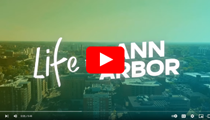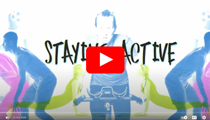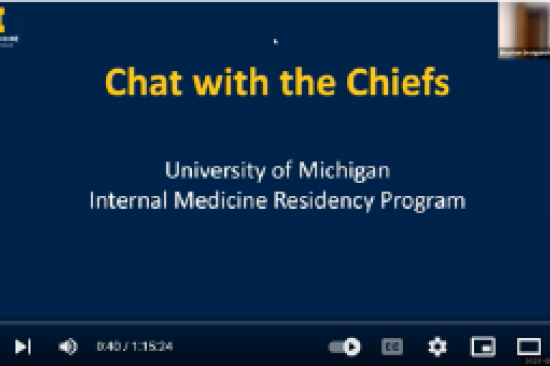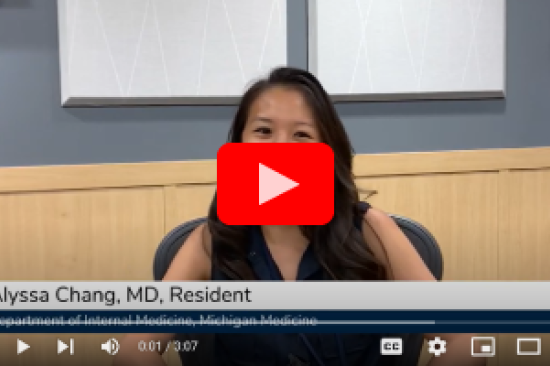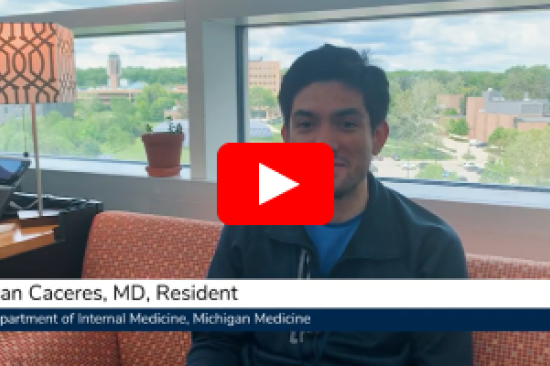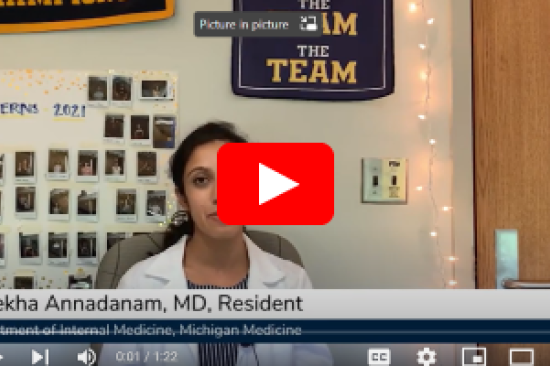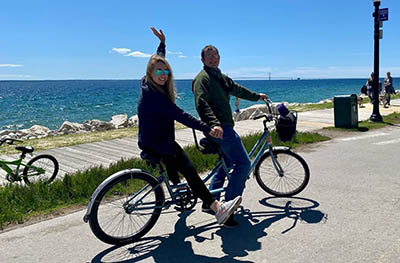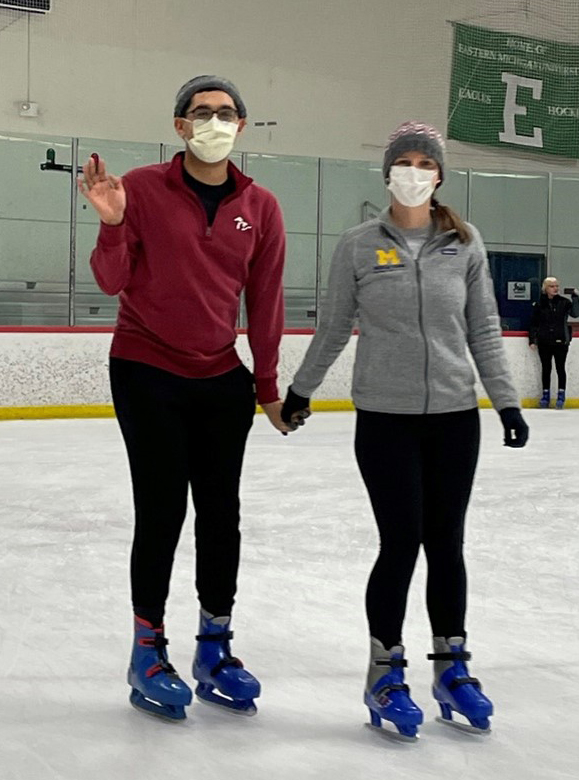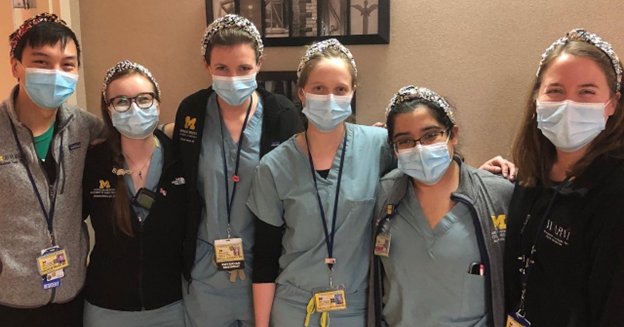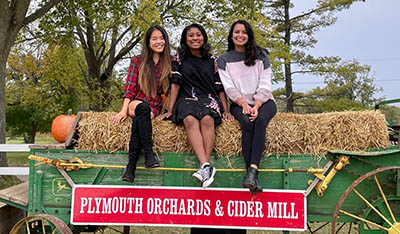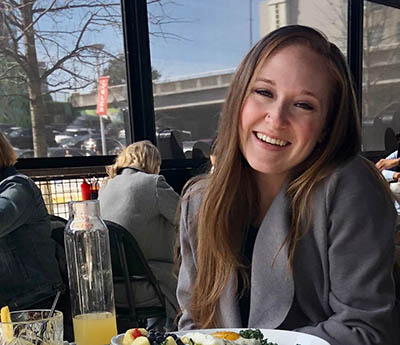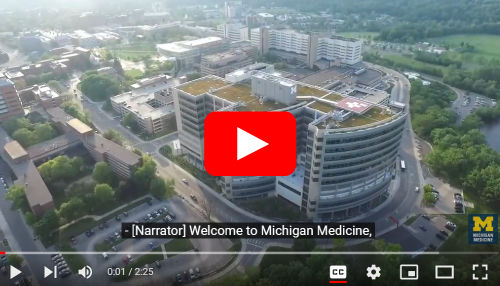Meet Kara Jencks, HO3 - An Inpatient Intern on the GI/Liver Service
Medical School: University of Texas
Career Plans: GI
I LOVE inpatient time. As an intern, my room light up alarm would usually be set for 5:00am and I would hear my back up alarms go off at 5:07, 5:15, 5:22, and 5:30, just in case because I am that type of person. I then would look at my phone to check my email and open up Haiku, which is the app we can download to look at some patient information connected with our EMR, Epic. This would give me the motivation to get up to go see patients. I am a breakfast person, so I would eat something quick or bring it with me, like a smoothie, or yogurt and granola, or avocado toast, or even a protein bar or banana. Of course, I then would brush my teeth, throw on a pair of scrubs from the hospital and our comfy North Face residency program jacket, grab my pager, and other things I needed for the day, like snacks, stethoscope, my brain, the usual. In the car, I would usually play some type of pop or hype music, like Beyonce, or Lizzo, or Megan Thee Stallion, or some EDM. As I am not a coffee drinker, that time was essential for bringing my A-game to work. I usually would get to the team room by 6:15, or 6:45 on later days when I had less patients. When you arrive, you get sign out from the night team on your patients and hear about any new patients. I would then "pre-chart" looking at labs, vitals, notes, medications on the patient, prep my note, and then go see my patients.
On rotations like the GI Liver Service, or GIL, our attending comes in around 7:30 and the night team presents overnight admits. On call days, we start admitting as of 7am, though the senior usually helps manage them until after you are done rounding on your patients. Rounds are filled with focused teaching, interaction with medical students, the pharmacist, and another intern and senior resident, as well as jokes and a fun time. We round with the liver attending and lumen/panc attending separately which is helpful as there are two teams on the GIL service at a time. Usually, we are done rounding on that service by 11am, just in time to watch virtual morning report at 11:15. We make sure consults and orders are put in, work on our notes, work on our sign-outs, and if we are on-call we see new admits, evaluate them, talk them over with the senior resident, and write an H&P and sign out. For lunch, the program provides a meal a few times per week and the cafeteria is great! We also get money on our ID card to help, especially when having to stay later than 7 every four days. As interns, we never have more than 8 patients at a time as the senior would help if there were any cap busters. This would allow us ample time to respond to pages, follow up studies, have tough, heart to heart goals of care conversations with our liver patients or go comfort patients with IBD flares or even pancreatic cancer. We even get to help learn about and treat the more severe disorders of brain-gut interaction, and coordinate care with psychiatry/psychology or advanced endoscopy. We also get to do paracenteses for our patients which has been really fun!
When on late call, we stay until at least 8pm when the night team arrives and then we can sign out. Thankfully, call is every other day, so that we don't violate duty hours. On non-call weekdays, we can leave as early as 3pm, though usually would be between 3-5pm. On non-call days on weekends, you can leave as early as noon, though more realistically about 2pm. Those days are great because it leaves enough time to do something fun outside or hang out with my partner and pets. We get one day off every week which I would usually spend grocery shopping, working out, and resting. To me, the inpatient day and night blocks are where I did most of my learning. It only got better as a second and third year: senioring is fun, though busy!
Pro tip: the University Hospital cafeteria has crepes for lunch on Fridays.
Meet Ariel Jordan, HO2 - A Primary Track Resident
Medical school: Morehouse
Career plans: Gastroenterology
As a primary care track resident, I absolutely love my outpatient clinic time. If you relate to that, you will love your ambulatory blocks. Even if you don’t find outpatient clinics as exciting, the usually free weekends (unless you have a night coverage) over the course of four weeks are a nice break from the busy inpatient schedule to catch up with family, and friends, and on some much-needed sleep!
On the ambulatory block, you have ambulatory morning report from 7:30-8:30 AM every weekday except Tuesday, which is another free hour in the morning. Ambulatory morning report is an excellent learning opportunity of the management of common conditions from various specialties you will often encounter in the primary care setting, such as headaches or chest pain. The cool part about these lessons is they are being taught by your peers who are also on the rotation with some help from a faculty expert advisor. Everyone on that ambulatory block gets a chance to teach about a topic they are interested in. You can also give a presentation on a somewhat less common yet important topic you may have a unique interest in. I gave my presentation intern year on how to be a physician advocate-a lesson I called “Advocacy 101: A Course for Primary Care Physicians.” I personally found that ambulatory morning report gave me an opportunity to showcase to my peers a topic I was passionate about and I got to make connections with a faculty member who shared my interests.
Following ambulatory morning report, it is time to head off to clinic. You have to be to your assigned clinic by 9 am each day. On ambulatory block, you will be placed in a variety of clinics, usually 2 different clinics each half day; some within your sub-specialty of interest, some primary care clinics including additional continuity clinic half days, and some specialty clinics you may have never experienced before. For example, I personally got a chance to go to Physical Medicine & Rehabilitation or PM&R clinic which is a specialty I had little exposure to in medical school, but I found interesting and helped me understand what experiences my continuity clinic patients have if I refer them there and when a referral to that clinic is appropriate. Even the additional primary care clinics can be interesting, whether you are in a clinic in at a satellite site like Northville Health Center or a private practice clinic, you will be surprised how different each clinic feels with varying patient populations and management styles of the physicians. You will likely even pick up some tips to use in your own continuity clinic. Usually, right around 5 pm, your day is done, and you have the rest of your evening free to possibly finish up notes from earlier in the day, or if you’re done, just relax!
Meet Meghan Loser, HO2 - Inpatient Nephrology
Medical school: Geisinger Commonwealth
Career plans: Pulmonary and Critical Care Medicine
The time on my alarm clock reads 6:45 a.m. At least, that’s what I think it says through my half-open eyes as I reach for the snooze button and successfully hit it on the first try without looking (I know its location far too well). Even though this wake-up call is essentially sleeping in, compared to my usual inpatient service alarm time, I still relish the extra few minutes of sleep. And, if I’m being honest, I intentionally set my alarm 10 minutes early for this exact purpose. By the time my second alarm sounds, I force my eyes fully open and climb out of bed. The smell of coffee brewing in the kitchen on its preset timer helps pull me from the covers. I silently thank my past self for setting the automatic brew the night before, and I make a quick mental note to try to be equally proactive tonight. I turn on one of my favorite true crime podcasts and catch up on this week’s episode while I scurry around to get ready for the day – the business casual attire of consult rotations requires slightly more effort than my typical roll-out-of-bed-into-scrubs look. I grab my trifecta (white coat, stethoscope, and coffee mug), then head out to my car where I keep the podcast going for the 15-minute drive to the hospital. By the time I park, they’re just about to reveal the identity of the mystery murderer, but it’s almost 8:00 already, so that will have to wait for the drive home later.
I walk into the fellows’ work room and am greeted by the sound of the consult pager going off with our first new consults of the day. The nephrology fellow is already busy pre-rounding on everyone’s renal function panels, but she pauses to divvy up the new consults between myself and my co-resident on the service. She gives us a brief overview of each consult, reminds us of the important history points to gather (HTN, DM, NSAIDs, the works), then sends us on our way to chart review. I take a few minutes to get settled, sipping my coffee while I wait for the computer to log in. Then, I start reviewing today’s labs for the patients I have been following on the service. Once I’m up to date, I do a quick review of the new patients I’ve picked up for today. One of them is a consult for an abnormal UA with proteinuria and hematuria; before I head up to the patient’s room, I take a few minutes on Up-To-Date to refresh my memory on nephrotic and nephritic syndromes, because Step 1 was far too long ago. I have a feeling we’ll be doing some teaching on this today. When I’ve refreshed my brain enough, I leave the work room to go see my patients.
I make it back to the room in time to start some draft notes for my patients and quickly run my thoughts by the fellow before our attending joins us for 10 a.m. rounds. We start with table rounds – quick updates for the established consults, and a more thorough discussion of our new patients. We pause around 11, and my co-resident and I log-on to Morning Report while the fellow and attending head over to the dialysis unit to see a few patients. We reconvene as Morning Report finishes up, and our crew heads out to the floors to do some bedside rounds. My stomach growls in one of the patient’s rooms, and I remember that I was too engrossed in my podcast this morning and forgot to grab my protein bar. I’m grateful when we finish with the last patient, and our attending releases us to grab lunch. The fellow’s pager has beeped at least seven times in the past hour, but she graciously sends us to the cafeteria while she goes back to the room to answer all the pages. We spend the afternoon writing notes and updating the primary teams before the attending returns around 4pm to do some teaching (as suspected, today’s topic is nephrotic/nephritic syndromes). Despite my quick review earlier this morning, I’m still quite rusty, and the attending assigns me the topic of FSGS to look up and teach the group tomorrow. We’ve now made it to 5pm, and the fellow releases us from our duties.
Before I leave for the day, I glance through the list of patients on the outpatient nephrology clinic schedule tomorrow, since that’s where we’ll be starting the day tomorrow morning. My co-resident and I then head out for the day. I flip the podcast back on for the trek home. As I’m driving, I make a mental to-do list for the evening – workout (??), cook dinner, do laundry, call the fiancé, catch up on data abstraction for my research project, set the coffee pot (!!). I get home and get to work on checking off my to-do list.
As 9pm rolls around, I settle into the couch for an episode of my current show, but as I’m about to press play, FSGS somehow sneaks into my thoughts, and I realize I’ve forgotten my assignment. I crack open my laptop and peruse Up-To-Date for the second time today, scribbling down notes as I go. When I’m satisfied, I close the laptop, press play on the remote, and reward myself with a bowl of popcorn. Soon, it will be time to head to bed and set the alarm to repeat the day tomorrow. But for now, I put my medical brain to sleep and focus my attention on the episode of Friends. Any more thoughts about the kidneys will just have to wait for tomorrow.
Meet Lucas Rich, HO2 - Typical Day On Early Call
Medical School: Western Michigan
Career Plans: Cardiology
Lucas Rich with wife, Lizzie, and dog, Lemma
My day typically starts around 5 AM by slugging down a piping hot mug of black coffee, cracking a hard-boiled egg, and making a bowl of instant oats. I know today is “early call” (we operate on a four day call cycle: early – off – late – off) which means we will have a couple of admissions overnight that I briefly read through while eating breakfast and waking up. I arrive to the hospital around 6:30 AM, touch base with the night residents about overnight admissions (we use a night float system), check in with the rest of the team (2 interns and two-three medical students), and away we go!
Because today is early call the attending will arrive around 7:30 AM to begins rounds (other days 8:30 AM) so we are working fast! The interns and medical students are out checking in with patients while I’m in the team room wrapping up my pre-rounds chart review. We re-group a few minutes before the attending arrives to address any patient needs, develop plans for the day, and our team takes over the admission pager for new patients from the emergency department. The attending strolls in and its time to kick off rounds!
We start with table rounds on the new admissions overnight and spend a few minutes dissecting key learning points, then it’s off to the races checking in on patients the team knows well. We will frequently get our first admission during rounds, so I’ll break away from the pack briefly to get things rolling, before returning to finish rounds between 10 – 10:30 AM. We’ll run the list as a team making sure all of our orders and consults are tidied up before tuning into morning report at 11:15 AM. We swing by the cafeteria (program provides lunch money) and devour our food just in time for the second admission of the day.
From noon until 2:00 PM we divide and conquer tasks including following up with consultants, discharging patients, progress notes, and swinging down to the emergency department to evaluate new admissions. (While on early call we admit up to 4 new patients until 2:00 PM, then the late call team takes over who can admit an additional 2 patients until 5:00 PM.) The attendings makes a planned stop by the team room in the mid-afternoon for dedicated teaching about a recent case and is available to discuss any questions that arise with new admissions during the day. We wrap up our documentation, make final check-ins with patients, and head over to the late call team to sign out around 5:00 PM – they will cross cover our patients until 7:00 PM when the night residents arrive and take over.
Whew! Early call days sure can be a whirlwind but it’s nice knowing tomorrow is a non-call day with no new admissions and a more relaxed vibe!
Meet Alex Hua, HO2
Name: Alex Hua
Medical School: University of Wisconsin
Career plans: Allergy
Intern year is a truly unique and special formative time in your professional trajectory. While it is probably one of the hardest things you'll ever do as a physician, it is equally one of the most rewarding. Inpatient rotations are when you work the longest hours and experience the core of residency, as most of your time is spent in the hospital. Although the beginning is always challenging, as you adjust you'll be able to figure out a routine that works best for you. I thrive off routine and operate best when optimizing clinical preparation, so my days tend to start quite early. I also have never slept much even prior to residency so my days may look a little different than other residents.
My morning begins anywhere from 4:45-5 AM depending on how well I know my patients. I often wake up to my innate alarm clock which tells me, "check to see if you got any admits overnight!" I open up Epic on my phone and scroll through the census to see if any new patients were added. If so, I'll read the H&P to learn their stories and get a sense of what the plan is for them, so that I won't totally be blindsided when walking in in the AM. Afterwards, I roll out of bed, don a set of scrubs and the essential Apple watch, wash up, and have breakfast and coffee before leaving at around 5:40.
I arrive at the hospital and first acquire my 2nd cup of coffee (for better or for worse I drink at least 4 cups daily mainly due to taste addiction). I take the stairs up to the workroom and spend 30-40 minutes pre-rounding on patients. This includes checking on overnight events, looking at vitals, glancing through labs and noting this all on paper before I go see all the patients. Pre-rounding takes no more than 35 minutes usually, as I make sure to get back in time before 7:30-8 AM depending on what time the attending wants to start rounding. This is variable depending on how many admits you get overnight and how busy the service is. On general medicine, admits are handed off to the day team so the overnight resident doesn't need to stay to present in the morning. The attending usually has already read up on the patient so we'll just go over the plan for the overnights, as well as discuss any urgent matters with the old patients on table rounds. After table rounds, we'll go physically round on all the patients which takes a few hours. Then, commences the work grind. This includes calling consults, putting in orders, writing notes and sign out. Social work rounds often occur during this time, which is much appreciated because our social workers and care managers help to coordinate discharges as well as any needs to make the transition back home or to a facility as smooth as possible for the patient. At some point throughout the day the attending will also do teaching, which I always look forward to. If we have med students on our team, I try to squeeze some time to give them a chalk talk and teach them something throughout the day too. Pay it forward with the knowledge!
After lunch, we'll usually hear back from consultants with subsequent orders to put in, and run the list again with the attending to ensure we're on the same page and provide any updates on patients. If it's a non-call day, sign out can happen as early as 3pm if you finish all your work. Early call days end closer to 5-6pm, and late call days end around 7pm. Admittedly, I am a big napper so as long as I get home by 5pm, I'll take a 1-1.5 hour nap before working out. Exercise is followed by dinner while decompressing and watching TV, and I go to sleep anywhere around 11 to 12:30 AM (again, not endorsing this little sleep for anyone, just how I personally operate!). It is SO important to include some time for self-care/decompression after you're done with work. It may be hard on late call days when you get home late, but even something as quick and simple as a 5 minute meditation before bed, texting a good friend you haven't talked to in a while, eating your favorite meal, or reading a book before bed can really go a long way.
